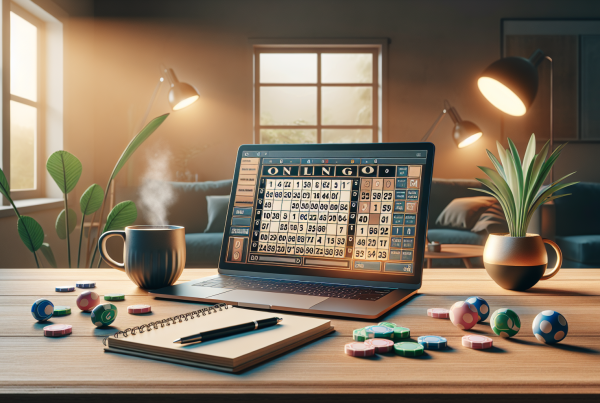Gaming is no longer just a pastime for kids or a niche hobby. They’ve become a global phenomenon, with millions of people playing across all ages, backgrounds, and cultures. From casual mobile games to immersive, story-driven adventures and competitive esports, gaming offers entertainment, social interaction, and even cognitive benefits. However, as with anything enjoyable, moderation and responsibility are key to maintaining a healthy balance between the virtual world and real life.

The Allure of Gaming
There’s a reason gaming is so popular—it’s fun. Games provide a sense of achievement, challenge, and escape. They offer worlds to explore, problems to solve, and communities to connect with. For many, gaming is a way to unwind after a stressful day, spend time with friends, or express creativity. And with the rise of online multiplayer games, players can interact with others from around the globe, creating a powerful sense of belonging.
But it’s this very appeal that can make it easy to lose track of time or let gaming interfere with other important parts of life. That’s where responsible gaming comes in.
Signs of Unhealthy Gaming Habits
Gaming becomes a problem when it starts to negatively impact your daily life. Here are some red flags to watch out for:
- Neglecting responsibilities: Missing school, work, or family obligations because of gaming.
- Sleep disruption: Staying up too late or losing sleep frequently to continue playing.
- Irritability or restlessness when not playing.
- Loss of interest in other activities you once enjoyed.
- Physical health issues, such as eye strain, poor posture, or lack of exercise.
If any of these sound familiar, it might be time to reflect on your gaming habits.
Tips for Gaming Responsibly
The goal isn’t to stop gaming altogether—unless it’s necessary for your well-being—but to enjoy it in a way that supports a healthy lifestyle. Here are some strategies for responsible gaming:
1. Set Time Limits
One of the easiest and most effective ways to game responsibly is to set clear time limits. Use alarms or screen time settings to remind yourself when it’s time to take a break. It’s easy to say “just one more round,” but having a set cutoff helps prevent unintentional binge sessions.
2. Prioritize Real-Life Commitments
Gaming should never take precedence over essential responsibilities like work, school, and relationships. Make sure your daily routine includes time for your obligations before you sit down to play.
3. Take Regular Breaks
Spending hours in front of a screen can lead to fatigue, eye strain, and poor posture. Every hour or so, take a short break to stretch, hydrate, and give your eyes a rest. The 20-20-20 rule is a good guideline: every 20 minutes, look at something 20 feet away for at least 20 seconds.
4. Stay Active
Balance your sedentary gaming time with physical activity. Whether it’s a walk outside, a quick workout, or even active video games that get you moving, staying physically fit supports both mental and physical health.
5. Be Mindful of In-Game Spending
Microtransactions and loot boxes can add up quickly. Set a budget for in-game purchases and stick to it. Avoid spending money impulsively, especially in games designed to encourage it through psychological tricks.
6. Keep Social Connections Offline Too
Online friends are great, but real-world interactions are irreplaceable. Make time for family, friends, and offline social activities. Don’t let gaming become your only source of connection.
7. Know When to Step Back
If gaming starts to feel more like a compulsion than a choice, it might be time to take a break. There’s no shame in stepping away to focus on your mental health or other parts of life. In some cases, talking to a therapist or counselor can help you develop healthier gaming habits.
Encouraging Responsible Gaming in Others
If you’re a parent, teacher, or friend of someone who games frequently, you can help promote responsible gaming by setting a good example and initiating open conversations. Avoid judgment or harsh restrictions, which can lead to secrecy or resentment. Instead, work together to create guidelines that support healthy play.
To maximise chances while enjoying vibrant visuals and exciting gameplay, the Fruit Party slot guide from BetPanda gives a comprehensive guidance and breaks down everything from game mechanics and bonus features to winning strategies and RTP details. Whether you’re a seasoned slot player or just diving into online casino games for the first time, BetPanda’s expert insights help you understand how Fruit Party works and how to play it more effectively. With tips on bankroll management and triggering free spins, the guide gives you a clear edge when spinning those juicy reels.
Final Thoughts
Gaming can be a fantastic source of joy, creativity, and connection. But like any activity, too much of a good thing can become harmful. By being mindful of how and when we play, we can make gaming a positive part of a well-rounded life.
Responsible gaming isn’t about quitting—it’s about balance. When we game with intention, we get the best of both worlds: immersive digital adventures and a fulfilling real life.
You might enjoy reading about safe gambling practices you should know.




